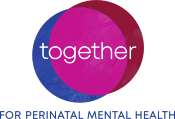The postpartum time, also referred to as the fourth trimester, in Ayurveda is known as the Sacred Window. It is said that the way the first 42 days after delivery are spent have a direct impact on the next 42 years of life.
So, what is Ayurveda and how does it relate to postpartum? Ayurveda is a centuries old practice originating in India known as the ‘Science of Life’ and offers a holistic and individual approach to health and wellness. Having an understanding of our constitution and the elements at play within us can help guide us in our day to day lives. This will help us find and maintain a balance of the three Doshas leading to greater overall well-being. The three Doshas are Vata (air/ether), Pitta (fire/water), and Kapha (earth/water). During birth and in the immediate postpartum (and longer if we are not adequately cared for) Vata is known to be high, vitiated, or out of balance. When Vata is unbalanced we can be fearful, anxious, angry, have trouble sleeping, become depressed, feel overwhelmed, and disconnected. When Vata is left unchecked this can lead to greater un-wellness and dis-ease.
There are 4 pillars of care for postpartum healing. Rest, Nutrition, Meditation and Breathwork, and Body Care. Let’s explore each of these in more detail.
Rest
In Western culture taking time to rest is often seen as a weakness. We are expected to get up and keep doing all the things. Ayurveda views the first six weeks postpartum as the most critical in ensuring our long-term health. Birthers are supported in resting so as to give their body, mind, and spirit time to balance and process everything they have just experienced. It is advised to have complete rest for at least two weeks, and try to stay off of your feet as much as possible for the remaining 4 weeks. The only task birthers should be doing during this timeframe is bonding with their baby.
Nutrition
The focus for postpartum nutrition should be on the following: warmth, comfort, nutrient dense, easy to digest, and well-spiced. This will aid in healing and rejuvenation and will help to promote good digestion for both the birther and their baby. Foods like soup, porridge, stew, rice pudding, dhal, kitchari, stewed fruit, and spices like cinnamon, ginger, cloves, nutmeg, cumin, and black pepper will provide much needed warmth and nourishment. It is also important to increase your healthy fats intake which will help to balance hormones quickly, build your milk supply, and improve your mood.
Meditation and Breathwork
Mindfulness techniques are a wonderful practice to utilize in postpartum. Practices like meditation, breathwork, journaling, or gratitude lists helps to focus the mind and calm the nervous system. This takes us out of the fight or flight response and into a more relaxed state where we can be calm and think clearly. The best way to do this is to integrate mindfulness into your day. As you are feeding the baby, taking a shower, or going for a walk, you can bring your awareness to your breath and feel it flowing in and out of the body; you can do a counting meditation, inhaling to 5 and exhaling to 5; you can simply take notice of your surroundings…what do you see or hear? Even 10 minutes a day can have a profound effect on your mental well-being.
Body Care
One of the most beautiful aspects of Ayurvedic care is bodywork. There are 3 key components of body care in postpartum. The first is massage. Warm oil massages known as Abhyanga are lovely to receive anytime, but especially in postpartum. One of the best ways to soothe and lower Vata is through touch. Massage is a wonderful tool for both the birther and their baby. Even 5-10 minutes of self-massage every day can have profound effects on your energy, mood, sleep, and overall well-being. Massaging your baby helps their digestion, enhances bonding and communication, promotes deeper sleep, tones muscles, and releases tension from being in the fetal position.The second component is herbal baths. A special blend of herbs that are healing and soothing for postpartum are made into a tea which can be added to the bathwater, used as a sitz bath, placed in a peri bottle for use after going to the washroom, or used diluted around the umbilical cord for healing. The third component is belly binding. A long piece of cotton muslin is wrapped around the body firmly but gently from just below the hip bones up to the lower ribs. This can help with stability in the hips and pelvis and reduces the feeling of emptiness in the womb. It is a gentle support for the muscles and organs.
Incorporating these practices into your postpartum care will help you to feel strong, empowered, and well: physically, mentally, and emotionally. Receiving proper care allows you to feel calm, radiant, and aligned, avoiding depletion, aging, overwhelm, anxiety, and depression.
As many of us no longer have a village around us to support us, it is necessary to create this for ourselves however we can. Before baby arrives make a list of everyone that you can call on for support. Family, friends, and neighbours can take turns preparing meals, cleaning the house, assisting with older siblings, and anything else that needs to be done. If you don’t have family nearby, hiring a postpartum doula is a great way to ensure you get the rest you need to not only fully heal and recover but also to thrive in your new role as a parent.
